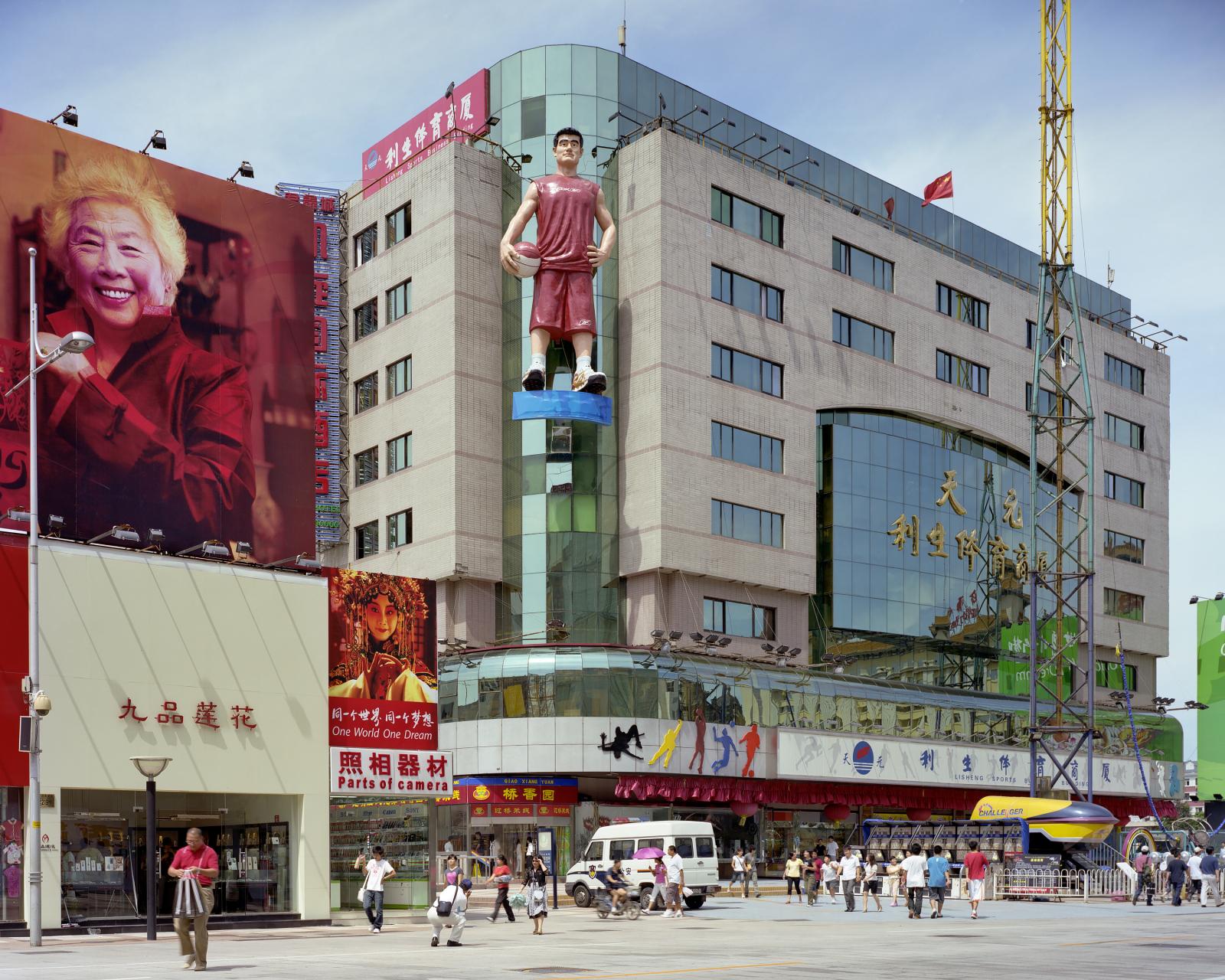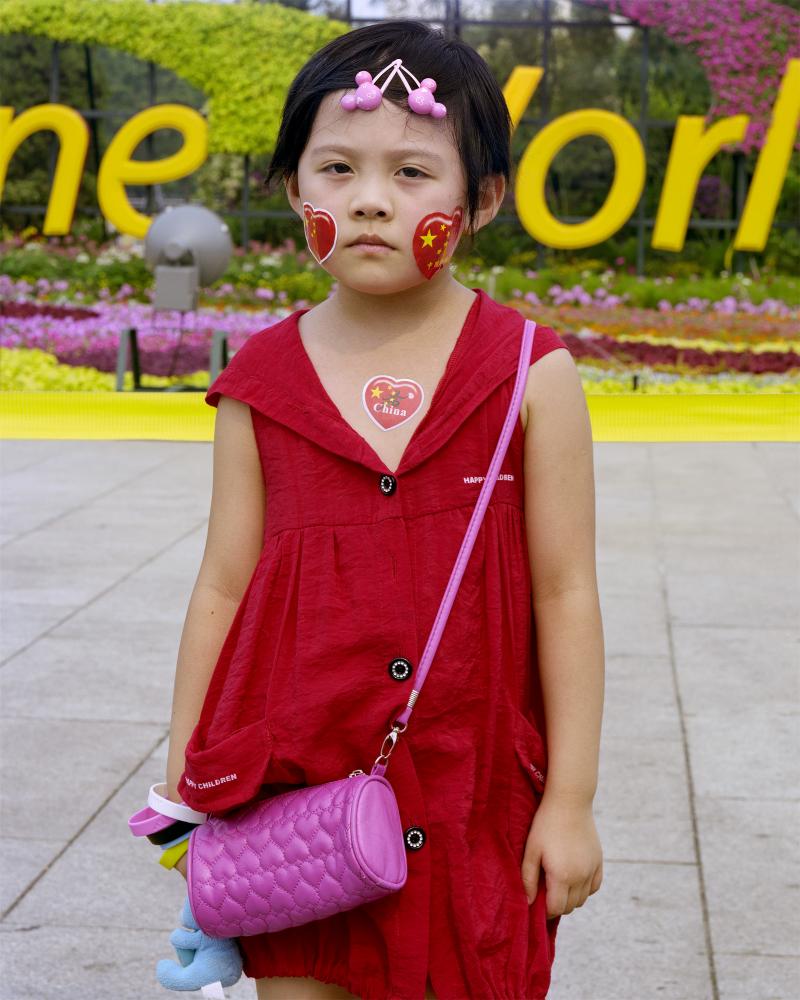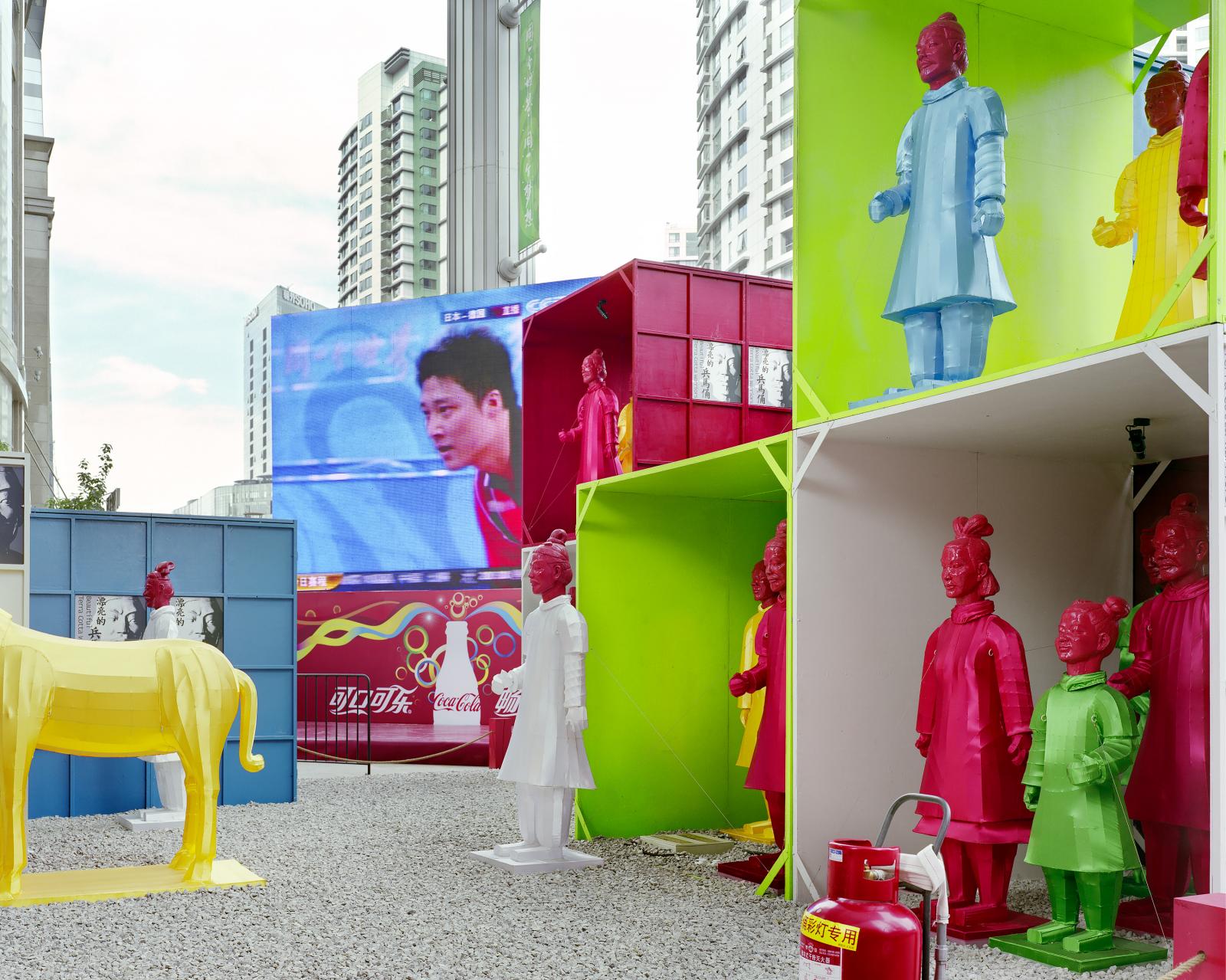The 2008 Beijing Olympics was of an unprecedented scale in modern Olympic history, in terms of the manpower and money put into it. Many of us may still remember its spectacular and spellbinding opening ceremony, and the torch relay with so many hiccups. The Chinese government perceived the Olympic events and the medals won by Chinese athletes as national glory that could stimulate patriotic sentiments. More importantly, China was so eager to demonstrate its soft power following the economic boom after becoming the “world’s factory”, and the Olympics provided the perfect opportunity. During the Olympics, we saw the five-starred Chinese national flags being more prominent than the Olympic flags with the five rings in the host city of Beijing.
Under the hot summer sun in August, outside the venues of the games, I took portraits of citizens who came from all different provinces of China. Most of them could not afford the tickets, and just came and hang around off the venues to experience the atmosphere and look at the expensive structures built for the games, including the “Bird’s Nest” (Beijing National Stadium) and the “Water Cube” (Beijing National Aquatics Center). These venues, together with the almost ecstatic atmosphere in the capital city, worked like a magnet drawing crowds from all over China. People behaved collectively in the same unnameable manner, to express their pride as if these venues were built for them. Although this was not the case in reality, they still enjoyed themselves without any complaint. Beneath the happiness engraved on their faces was patriotism that shrouded the whole Beijing city.
At the same time, the massive efforts to facelift the city owing to the Olympics resulted in little harmony with the people. This ambiguous contrast between the people and the city inspired me to think of the other side of the story. The Chinese people themselves were perhaps the real “Olympic athletes”. Although they knew they would not win any medals, nor would their sacrifices be rewarded, they still put their hopes on the Olympics and on their country.
Also by Dustin Shum —
Sign-up for
For more access
For more access


























